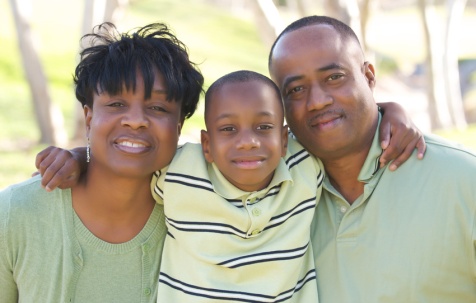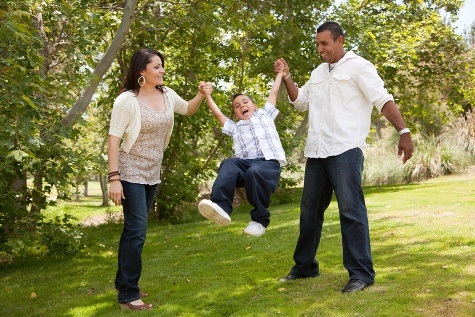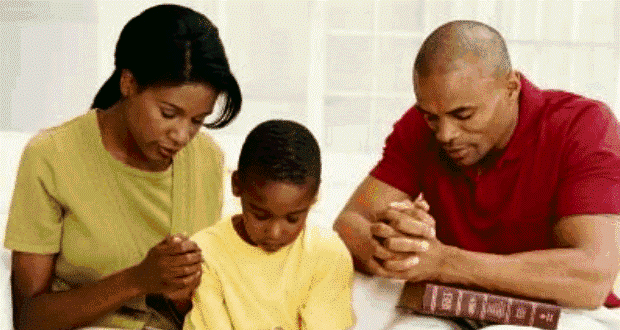Catholic Family Become What You Are – A Means Of Evangelizing The World

We have seen that the Catholic family by virtue of the Sacrament of marriage is a community of life and love and “its role represents the dynamic and existential development of what it is.” F.C. #14. It must become more each day through the interaction and relationship of its members a community of life and love, rooted in Christ and witnessing to the primacy of the Kingdom. This is where the New Evangelization takes root and spreads to the community, the parish, the school, the Church and the wider society. Crucial to the integral development of each family member is a proper catechesis in the faith and pastoral initiatives in the parish that teach, enable, empower, and call forth family members as missionary disciples in the Church’s tradition. Our task as an Archdiocese in the New Evangelization is to help families reclaim their Catholic identity by living out more fully the call of their baptism and by becoming once again the school of life and love for their members.
 With this in mind, the Archdiocesan Agenda in light of the theme for 2010 can be stated as;
With this in mind, the Archdiocesan Agenda in light of the theme for 2010 can be stated as;
That all Catholic families come to recognize and know that by virtue of their baptism they are called to be a community of life and love, rooted in Christ, and witnesses to the primacy of the Kingdom.
In keeping with the above stated agenda a framework has been developed for use in the Archdiocese which we hope will generate discussion, reflection, new forms of catechesis and learning and which will also influence pastoral plans in parishes and other functioning bodies in the Archdiocese.
THE FRAMEWORK IS AS FOLLOWS:
-
-
It takes a man to be a father, a woman to be a mother, a married couple to build a family, families to make a village, and a village to raise a child.
-
Men—Father
-
Women—Mother
-
Married couple—family
-
Village—Extended family/community
-
-
-
-
It Takes a Man to be a Father.
-
Only a man can be a father, but fatherhood is not simply biological, at its best the mature man brings to the family the gift of fatherhood that initiates and nurtures his children into authentic humanity through the witness of complementarities with his wife.
-
Authentic conjugal love presupposes and requires that a man have a profound respect for the equal dignity of his wife: “You are not her master,” writes St. Ambrose, “but her husband; she was not given to you to be your slave, but your wife…. Reciprocate her attentiveness to you and be grateful to her for her love.”(69) With his wife a man should live “a very special form of personal friendship.”(70) As for the Christian, he is called upon to develop a new attitude of love, manifesting towards his wife a charity that is both gentle and strong like that which Christ has for the Church.”(F.C.#25)
-
Mature masculinity provides a witness of fidelity, sacrificial love, responsibility and faith, which offers the family security, boundaries and inner strength. Ultimately this is a reflection of God the Father.
-
In revealing and in reliving on earth the very fatherhood of God,(73) a man is called upon to ensure the harmonious and united development of all the members of the family: he will perform this task by exercising generous responsibility for the life conceived under the heart of the mother, by a more solicitous commitment to education, a task he shares with his wife,(74) by work which is never a cause of division in the family but promotes its unity and stability, and by means of the witness he gives of an adult Christian life which effectively introduces the children into the living experience of Christ and the Church. …(F.C. #25)
-
St. Joseph as a man of honor and faith models this.
-
We highly recommend the following books for reading: ‘Fathering the Next Generation’ William J. Jarema. Cross Roads: New York; ‘From Wild Man to Wise Man’ Richard Rhor. St. Anthony Messenger Press: Ohio; ‘Soul Brothers’ Men in the Bible Speak to Men Today. Richard Rhor. Orbis Books: New York.
-
-
-
-
It takes a Woman to be a Mother.
-
Only a woman can be a mother, but motherhood is not only biological, at its best the mature woman brings to the family the gift of motherhood that in complementarity with her husband initiates and nurtures her children into relationship which is the corner stone of community and life.
-
Above all it is important to underline the equal dignity and responsibility of women with men. This equality is realized in a unique manner in that reciprocal self-giving by each one to the other and by both to the children which is proper to marriage and the family. F.C.#22
-
Mature femininity witnesses to the obedience of faith, to hope, gentleness and compassion and teaches the child to trust, bond, emote and connect laying the foundation for healthy community.
-
God then manifests the dignity of women in the highest form possible, by assuming human flesh from the Virgin Mary, whom the Church honors as the Mother of God, calling her the new Eve and presenting her as the model of redeemed woman. (F.C.#22) The true advancement of women requires that clear recognition be given to the value of their maternal and family role, by comparison with all other public roles and all other professions. Furthermore, these roles and professions should be harmoniously combined, if we wish the evolution of society and culture to be truly and fully human. (F.C.#23)
-
Mary, mother of God, mother of humanity, is the model.
-
-
It takes a Married Couple to build a family.
Partnership of every aspect of life must be visible, integrating the psychological, physical, material, moral and spiritual aspects of life.
For the Good of the Spouses: A commitment to recognize and honor the dignity of the other as a child of God and as my partner in the journey of life. The ultimate good of each spouse is the eternal salvation of their souls.
When the good of the spouse is present then the environment for the procreation and education of children is realized.
By education is meant the integral human development and formation of which the family is the first school.
-
It takes a village to raise a child.
Amongst the many configurations of family life in Trinidad and Tobago the extended family has been the natural model.
The catholic ideal of the family in the Caribbean includes the father and mother, grand parents, aunts and uncles and other relatives living as one family.
The extended family members particularly the elderly, “carry out the important mission of being a witness to the past and a source of wisdom for the young and for the future. The pastoral activity of the Church must help everyone to discover and to make good use of the role of the elderly within the civil and ecclesial community, in particular within the family. In fact, “the life of the aging helps to clarify a scale of human values; it shows the continuity of generations and marvelously demonstrates the interdependence of God’s people”. F.C.#27
This model is built on the wisdom of a village raising a child and allows wider and deeper participation in the parenting of the children.
This is the model of Nazareth.







